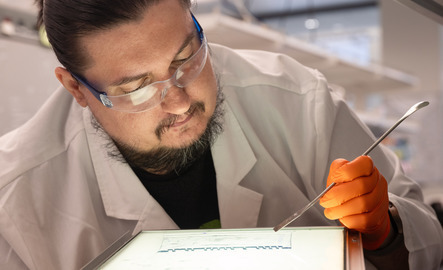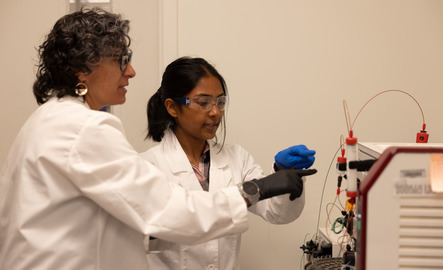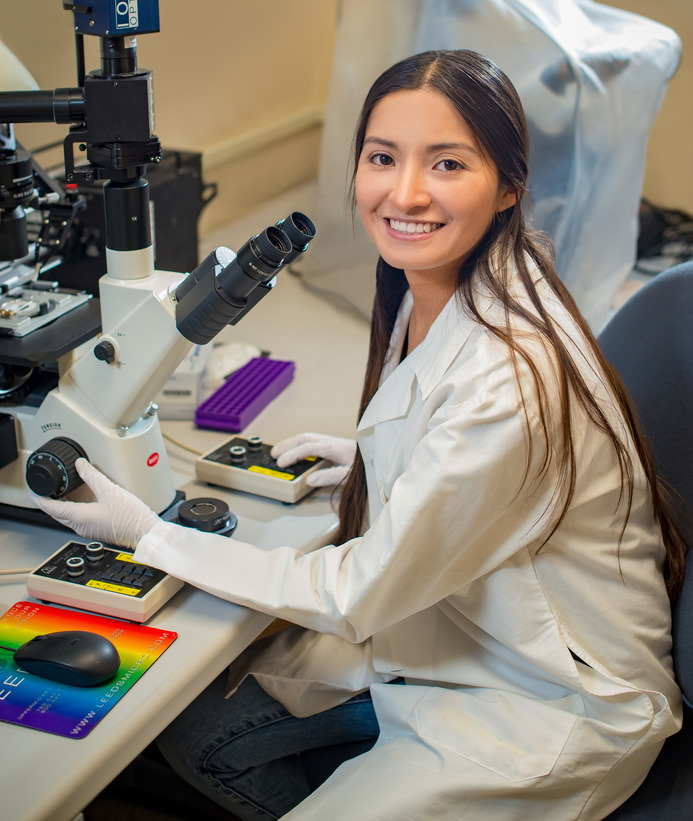About the Molecular Biology Graduate Program
As a molecular biology graduate student, you’ll receive an advanced education in molecular biology as well as interdisciplinary training in cutting-edge lab techniques and computational tools. Our faculty regularly publish in leading high-impact journals and complete research funded by federal agencies. You will conduct specialized research alongside our faculty members as part of your degree. Outside the classroom, students are exposed to a variety of biological topics, thanks to weekly seminars and visiting speakers.

Prospective applicants must identify a MOLB faculty member sponsor before submitting a formal application to this program.
The master's program in molecular biology includes advanced coursework in molecular sciences with a focus on a research component, which prepares student for a doctorate program, research, employment or other postgraduate programs.
Like the master's program, the Ph.D. program in molecular biology is research-intensive with advanced courses and giving student the opportunity to conduct an extensive laboratory research project in molecular and cellular biology or microbiological research areas.

Full Curriculum & Course Lists
Before you apply, you must identify a MOLB faculty member sponsor who will provide financial support and mentorship for your graduate studies. Applications that are submitted without the consent of a faculty sponsor will not be accepted. Applicants will provide a CV, a 2-page statement of research interests and career plans, contact information for three references, academic transcripts from previous institutions where you have studied and a note of support from the prospective MOLB faculty mentor. GRE scores are encouraged but optional. Applicants will be charged an application processing fee, which might be reimbursed by their faculty sponsor.

What can you do with a molecular biology degree?
A Ph.D. or master’s degree in molecular biology prepares you for a high-impact career, regardless of the industry you choose. Many of our graduates conduct postdoctoral fellowships at leading research institutes, while others complete medical training. In addition to these paths, many of our alumni pursue research positions at biotechnology and pharmaceutical companies.
Our alumni pursue additional education, as well as research and teaching positions, at a number of top universities. These institutions include:
- University of Alberta
- MIT
- Yale University
- University of California, Berkeley
- Harvard University
- University of California San Diego
- Rice University
- University of Utah
- Chromatin dynamics and transcription through the nucleosomes
- Complex macromolecular structures
- Gene regulatory networks
- Targeted genome editing
- Molecular cloning
- Polymerase Chain Reaction (PCR)
- Optical and electron microscopy
- Plant breeding
- Genome sequence analysis
Molecular Biology Research Happening At UW
At the University of Wyoming, researchers Silvia Sanchez-Martinez and Thomas Boothby are studying unique proteins from tardigrades, which are tiny, nearly indestructible organisms known as "water bears." These proteins help tardigrades survive extreme conditions by forming protective gels inside their cells. The Boothby Lab is working to apply this discovery to preserve blood and organs without refrigeration and protect astronauts’ health in space.


